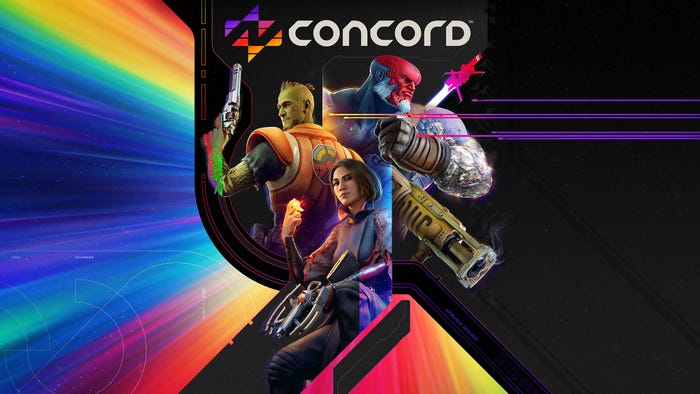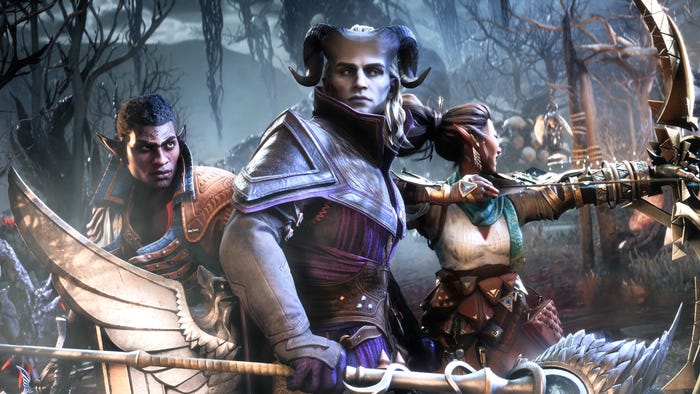Are Choices in Games Overrated?
A take on decision making and choice in games. Written for USC's introductory game design class, CTIN 190.

Are Choices in Games Overrated?
We live in an age where there is a huge broad number of games and game genres – from huge, AAA games like Call of Duty, the small, experimental games like Passage, the age of personalized computers and access to cheap software has created an explosion in the gaming world. Yet, one of the major questions of gaming in our era is how you define a game, and what makes a good game. While there may be countless different definitions, there has been a rise in a philosophy that good games require interesting player decisions and interactivity. With such a huge variety in genres, I believe this umbrella definition ultimately does not fit a huge number of games.
 While many up-and-coming games critics like to distance the analysis between contemporary video games and film, for many games, this division is unnecessary. Indeed, games and interactive media may be the future of art, culture, and pastime, but the current developers of the medium grew up in a generation where film directors were the kings of culture, where James Cameron terrified audiences with Alien and Luke Skywalker rambunctiously walked his “Hero's Journey.” Surely one would think as younger game developers who enter the field with more exposure actually playing video games as children would draw more from this inspiration rather than film, you could argue that opposite has come true. Limited-interactivity, “cinematic” games have had a rise in popularity in recent years, with Supermassive Games’, Until Dawn and Dontnod Entertainment’s, Life is Strange being the two most recent example. While the receptions for his games have been mixed, David Cage has produced Beyond Two Souls, Heavy Rain, and the Indigo Prophecy, which all had varying degrees of success. Yet there are countless examples -- TellTale Games now has an episodic business model, creating heavily cinematic, yet limitedly interactive versions of movies, TV shows, and comics. Even some of the most esteemed pieces that aren’t traditionally classified as a “movie game” have adopted these concepts.
While many up-and-coming games critics like to distance the analysis between contemporary video games and film, for many games, this division is unnecessary. Indeed, games and interactive media may be the future of art, culture, and pastime, but the current developers of the medium grew up in a generation where film directors were the kings of culture, where James Cameron terrified audiences with Alien and Luke Skywalker rambunctiously walked his “Hero's Journey.” Surely one would think as younger game developers who enter the field with more exposure actually playing video games as children would draw more from this inspiration rather than film, you could argue that opposite has come true. Limited-interactivity, “cinematic” games have had a rise in popularity in recent years, with Supermassive Games’, Until Dawn and Dontnod Entertainment’s, Life is Strange being the two most recent example. While the receptions for his games have been mixed, David Cage has produced Beyond Two Souls, Heavy Rain, and the Indigo Prophecy, which all had varying degrees of success. Yet there are countless examples -- TellTale Games now has an episodic business model, creating heavily cinematic, yet limitedly interactive versions of movies, TV shows, and comics. Even some of the most esteemed pieces that aren’t traditionally classified as a “movie game” have adopted these concepts.
Take, for example, the third person, action-adventure game, The Last of Us, which has been considered by many to be one of the greatest video games of all time. Millions of people love this game, and for good reason -- it is one of the few games that actually lives up to the hype and official reviews. In an article discussing whether or not The Last of Us is one of the best videogame ever created, VideoGamer.com’s Simon Miller writers, “... there’s a very strong argument to be had that Naughty Dog’s action-horror is among one of the best titles, period… As the developer is more than happy to let you know, a large part of this is down to its narrative.” On the opposing end of that argument, Brett Phipps argues:
“Whenever I talk about The Last of Us with friends, I notice a common theme: when people discuss their favorite, or standout moments, very few are actually tied to gameplay. Many of the key moments people recall are cutscenes, a piece of biting dialogue or that moment in the surgeon’s theatre, but nothing of which the player is the agent. ... In actuality, you had no control: they were in-game cutscenes in which you had no autonomy.”
Critiques such as this seriously brings into question exactly what players and reviewers love so much about the game. If you look at a review of any type, the pervading explanation is the strength of its story. However, the story itself is actually quite cliche: a single, overarching protector must successfully deliver humanity’s last hope. While it twist this at the end, this “Last Bastion” trope has been told and retold countless times in countless mediums: The Matrix, Children of Men, and even Bioshock Infinite, which was released around the same time as The Last of Us. Joel, one of the two main protagonists in the game, perfectly goes through almost each and everyone of the twelve steps outlined in the Hero’s Journey -- Joseph Cambell’s work on the monomyth certainly holds up in this regard. Rather than the premise of the story, what gamers are actually trying to say, is that they revere Naughty Dog’s storytelling in this instance. Indeed, the majority of criticism from the game primarily concerns the gameplay. In an article published on Game Professionals, Morgan Lewis states, “It [The Last of Us] introduced us to a fascinating world with wonderfully dynamic characters, but that doesn’t excuse lackluster gameplay.” While Lewis’ main criticism is of the gameplay, there certainly is plenty of it.
The apparent issue here is that The Last of Us is an incredibly interactive game -- you are constantly hiding, scavenging, killing and crafting, yet the player has no impact on the story. This is the exact opposite format of the “interactive dramas” mentioned previously, where what the player does actually affects the outcome of the narrative. So what is happening here? While there can be no substantive argument on whether or not on genre within games is “better” than the other, it does seem like player choice and interactivity gets stiffed in one way or another, yet millions of players still love these games. If a good game is truly a series of interesting decisions, what exactly are the decisions you make in The Last of Us? As stated before, in the story itself, you have none. You do have a number of gameplay-based decisions -- you can try and sneak around your enemies, face them head on, or a combination of the two. You can try and explore every nook and cranny for supplies, or you can try and complete the levels as quickly as possible. Despite all of these choices the player makes in this regard, which does make the gameplay more dynamic, the gameplay itself was the worst-received aspect of the game. Even if the gameplay and design was stripped down, would it still be considered the best game of the generation? This is a difficult question to answer, certainly, but there is no doubt in my mind that it would still be highly praised for its storytelling. The Last of Us would stand on its own, without story-impacting decision making on the part of the player. In reality, players make no “interesting decisions” in this game. When it comes down to it, players have no influence on the story, and this is the norm for most games. Even beyond the field of interactive digital media, have there been mediums where a strong narrative arc comes out of player choice? While they were certainly enjoyable as kids, how many “Choose Your Own Adventure” books have won awards? Would The Great Gatsby have been a better narrative if readers chose whether or not Gatsby took the blame when Daisy ran over her husband’s mistress, Myrtle? Perhaps, it is difficult to say. But it would have definitely disrupted the narrative, and completely shifted the genre and the meaning of the novel. Of course, while there are obvious differences between the two mediums, the same question can easily be posed with other video games. Would the narrative of The Last of Us been stronger if players could choose to make Joel sheepishly confess to Ellie that he sacrificed the entire human race just to keep her alive? I think not. While, as viewers, it may have been a satisfying option to explore, it would have made the entire narrative far less meaningful. This is one of the factors that has separated big-budget video games from great works of literature and film: many of the greatest examples of these mediums are not trying to entertain, but are trying to make some kind of philosophical point or argument. While there are a plethora of independent games that shares these same goals, in the mainstream, AAA developers have had a traditional emphasis on player enjoyment and sales, which may produce happy consumers in the short term, but distances games from other mediums of expression.
 In his latest game, The Beginner’s Guide, Davey Wreden introduces a number of his personal thoughts and philosophies through a character in the game, Coda. The game itself could not be more different than The Last of Us, or a cinematic storytelling game. In terms of gameplay and format, it is largely the same as Wreden’s previous game, The Stanley Parable -- the player can walk, look around, and occasionally interact with objects or NPC’s with the E key. It also follows the same technique of using a narrator that can control the game world, and speaks directly to the player -- in this game, it’s Wreden himself, who is sharing a series of sixteen games by his ‘friend,’ Coda, over a span of roughly three years. In the game, Wreden discusses his interactions with Coda and his philosophies and design decisions behind his variety of mini-games, many of which are ordinarily unplayable and require Wreden (the narrator) to actively change the code and intent. Though the objective of the The Beginner’s Guide is to tell a very personal story and not discuss game design philosophies, Wreden nevertheless offers an interesting take on interactivity and player decisions within the game. It should be noted that it becomes fairly obvious midway through the game that Coda is actually an aspect of Wreden’s personality, as well as the version of Wreden who is narrating the game -- it is recollection of internal debates. Regarding interactivity and player choice, in one of the mini-games Wreden references a conversation he had with Coda regarding an unplayable exploration game he had sent him. Frustrated by the game, Wreden asks what the point of a game is if it cannot be played -- interactivity and player choice is what drives it, and makes it “good.” In response, Davey sends Wreden hundreds of games, all of which just consist of a square, empty room, where all the player can do is walk around. This is a heavy-handed example of how Wreden, the design and not the narrator, argues that just because a game interactive, does not mean it would be good. He would rather make a meaningful game that is unplayable that no one would see, rather than a game that says nothing but everyone can play.
In his latest game, The Beginner’s Guide, Davey Wreden introduces a number of his personal thoughts and philosophies through a character in the game, Coda. The game itself could not be more different than The Last of Us, or a cinematic storytelling game. In terms of gameplay and format, it is largely the same as Wreden’s previous game, The Stanley Parable -- the player can walk, look around, and occasionally interact with objects or NPC’s with the E key. It also follows the same technique of using a narrator that can control the game world, and speaks directly to the player -- in this game, it’s Wreden himself, who is sharing a series of sixteen games by his ‘friend,’ Coda, over a span of roughly three years. In the game, Wreden discusses his interactions with Coda and his philosophies and design decisions behind his variety of mini-games, many of which are ordinarily unplayable and require Wreden (the narrator) to actively change the code and intent. Though the objective of the The Beginner’s Guide is to tell a very personal story and not discuss game design philosophies, Wreden nevertheless offers an interesting take on interactivity and player decisions within the game. It should be noted that it becomes fairly obvious midway through the game that Coda is actually an aspect of Wreden’s personality, as well as the version of Wreden who is narrating the game -- it is recollection of internal debates. Regarding interactivity and player choice, in one of the mini-games Wreden references a conversation he had with Coda regarding an unplayable exploration game he had sent him. Frustrated by the game, Wreden asks what the point of a game is if it cannot be played -- interactivity and player choice is what drives it, and makes it “good.” In response, Davey sends Wreden hundreds of games, all of which just consist of a square, empty room, where all the player can do is walk around. This is a heavy-handed example of how Wreden, the design and not the narrator, argues that just because a game interactive, does not mean it would be good. He would rather make a meaningful game that is unplayable that no one would see, rather than a game that says nothing but everyone can play.
 Another small, independent game that questions player choice and the theory that good games require interesting decisions is Mountain. In this “ambient, procedural mountain simulator,” players don’t do anything. Leigh Alexander writes, “There is nothing to play; your mountain exists, sunlight and dark play over its green craggy face, weather happens to it. Occasionally a few words appear on the screen: The mountain has thoughts or feelings about the weather or the night.” Mountain has no established genre in the games world, and it seems to revel in this -- when you open the menu to look at the controls, it flatly says “NOTHING.” In reality, you can use your mouse to rotate this floating mountain, but that’s all you can do. You can’t make it change seasons or speak; the player has no influence over what it does. So, is this considered a game? It requires player input, but just like so many other examples, it does not allow for any player decisions. What Mountain does do, however, is make a statement on what is a game and interactivity in general. Tyler Wilde, from PC Gamer writes,
Another small, independent game that questions player choice and the theory that good games require interesting decisions is Mountain. In this “ambient, procedural mountain simulator,” players don’t do anything. Leigh Alexander writes, “There is nothing to play; your mountain exists, sunlight and dark play over its green craggy face, weather happens to it. Occasionally a few words appear on the screen: The mountain has thoughts or feelings about the weather or the night.” Mountain has no established genre in the games world, and it seems to revel in this -- when you open the menu to look at the controls, it flatly says “NOTHING.” In reality, you can use your mouse to rotate this floating mountain, but that’s all you can do. You can’t make it change seasons or speak; the player has no influence over what it does. So, is this considered a game? It requires player input, but just like so many other examples, it does not allow for any player decisions. What Mountain does do, however, is make a statement on what is a game and interactivity in general. Tyler Wilde, from PC Gamer writes,
“Instead of “how do the controls feel” or “has the stealth gameplay improved,” it's all new thoughts about a more exciting question: “Does this matter?” The answer might be yes, but it might also be no. We don't have years of iteration to tell us whether or not Mountain is important. That's invigorating, but it's also why buyers might feel duped out of a dollar, and they have every right to feel that way.”
Indeed, while players on Steam often feel polarized about Mountain, many, myself included, have been drawn in and intrigued at the concept behind it. Personally, I do think it classifies as a game, but perhaps it stands alone in its own genre.
The final point I would directly like to comment on, is what makes a good game. Tracy Fullerton and Sid Meier both offer very similar definitions. One of Meier’s famous quotes was when he declared, “Games are a series of interesting decisions.” In one of Fullerton’s papers, Improving Player Choice, Fullerton reorganizes Meier’s statement: “So when Sid Meier says "interesting choices," what he means is that the game must present a stream of critical decisions that either directly or indirectly impacts the player's ability to win. No matter what you've been told in the past, drama and suspense in games seldom come from the storyline.” However, not everyone agrees with this kind of umbrella definition. In his essay, “A Game Isn’t a Series of Interesting Decisions,” Dr. Chris Bateman directly contradicts Sid Meier’s and Tracy Fullerton’s assertions that games are a series of interesting decisions. He does agree that it is a common definition, that “game designers, and people interested in games in general, often like to draw upon this definition.” He goes on to say, “Either this statement is in error[in response to Meier’s statement], or it refers to a particular subset of games, because it categorically does not apply to everything that we call a game.” Bateman goes on to list several examples of both analog and digital games in which players make no decisions whatsoever: Snakes and Ladders and Guitar Hero are two examples. I believe the real problem here is that there is a huge library of things that can be considered a “game.” In an analysis of gameplay cinematics, Paul Chang, a researcher at University of California, Riverside, states, “...by fully recognizing the transmedia relationships between the narrative form of movies and ludogical content of video games, we can begin to look beyond the simple dialectic of video game analysis as merely the opposition of narratology and ludology.” In essence, Chang is arguing that we require a broader approach to understanding, interpreting, and classifying video games.
It seems that the main issue with classifying and analyzing games is the incredibly wide genre -- it is much easier to compare . In order to properly discuss games, you need to make the distinction between different genres -- perhaps there can be no single definition of what a game is. It certainly isn’t a stretch to compare a game like The Last of Us to a movie, but it certainly would not function if Mountain was compared to a comic book. Yet, all of the games I have discussed have one thing in common: players do not have active decision-making role. I believe that Meier’s and Fullerton’s definition of a game does work, but only for certain subsets and genres of videos games.
Works Cited
Alexander, Leigh. "GDC 2012: Sid Meier on How to See Games as Sets of Interesting Decisions." Gamasutra. N.p., 7 Mar. 2012. Web. 29 Nov. 2016. <http://www.gamasutra.com/view/news/164869/GDC_2012_Sid_Meier_on_how_to_see_games_as_sets_of_interesting_decisions.php#comments>;.
Alexander, Leigh. "There Is Nothing to 'do' in OReilly's Mountain - and That's a Good Thing." Gamasutra Article. N.p., 8 July 2014. Web. 30 Nov. 2016. <http://www.gamasutra.com/view/news/220443/There_is_nothing_to_do_in_OReillys_Mountain__and_thats_a_good_thing.php>;.
Bateman, Chris, Dr. "A Game Isn't a Series of Interesting Decisions." Only a Game. N.p., 2 July 2008. Web. 27 Nov. 2016. <http://onlyagame.typepad.com/only_a_game/2008/07/a-game-isnt-a-series-of-interesting-decisions.html>;.
Campbell, Joseph. The Hero with a Thousand Faces. Princeton, NJ: Princeton UP, 1972. Print.
Cheng, Paul. "Waiting for Something to Happen: Narratives, Interactivity and Agency and the Video Game Cut-scene." DiGRA Conference (2007): 15-24. DiGRA.org. 2007. Web. 27 Nov. 2016. <http://www.digra.org/wp-content/uploads/digital-library/07311.24415.pdf>;.
Fullerton, Tracy, Chris Swain, and Steve Hoffman. "Improving Player Choices." Gamasutra - Improving Player Choices. Gamasutra Features, 10 Mar. 2004. Web. 29 Nov. 2016. <http://www.gamasutra.com/view/feature/130452/improving_player_choices.php?print=1>;.
Kalman, Samantha, and Liz England. "The Game Dev Letters: A Series on The Beginner's Guide." Gamasutra. N.p., 4 Nov. 2015. Web. 28 Nov. 2016. <http://www.gamasutra.com/view/news/258342/The_game_dev_letters_A_series_on_The_Beginners_Guide.php>;.
Phipps, Brett, and Simon Miller. "Is The Last Of Us the Best Game Ever Made?" VideoGamer.com. N.p., 01 Aug. 2014. Web. 27 Nov. 2016. <https://www.videogamer.com/features/is-the-last-of-us-the-best-game-ever-made>;.
Wilde, Tyler. "Why Critics Love Mountain, but Steam Users Are Calling It 'worthless'" Pcgamer. PC Gamer, 20 Aug. 2014. Web. 28 Nov. 2016. <http://www.pcgamer.com/why-the-media-loves-mountain-but-steam-users-are-calling-it-a-screensaver/>;.
Read more about:
BlogsAbout the Author
You May Also Like








.png?width=700&auto=webp&quality=80&disable=upscale)
.png?width=700&auto=webp&quality=80&disable=upscale)